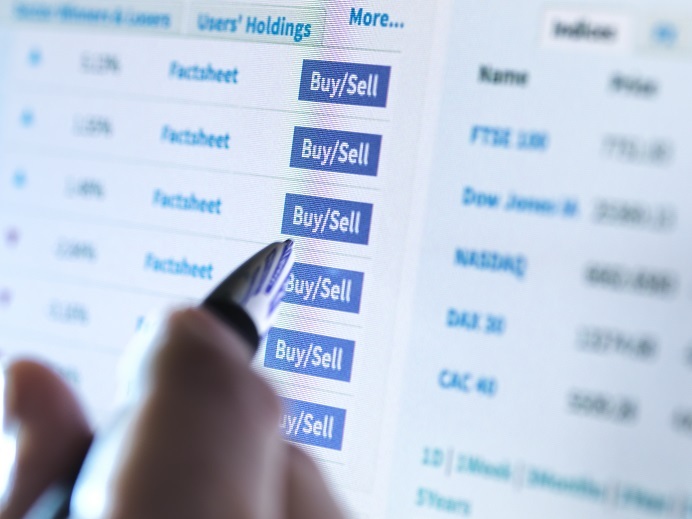
 Data Structure
Data Structure Networking
Networking RDBMS
RDBMS Operating System
Operating System Java
Java MS Excel
MS Excel iOS
iOS HTML
HTML CSS
CSS Android
Android Python
Python C Programming
C Programming C++
C++ C#
C# MongoDB
MongoDB MySQL
MySQL Javascript
Javascript PHP
PHP
- Selected Reading
- UPSC IAS Exams Notes
- Developer's Best Practices
- Questions and Answers
- Effective Resume Writing
- HR Interview Questions
- Computer Glossary
- Who is Who
What is the full form of GDR?
Introduction
Global Depository Receipt (GDR) is typically issued by a bank or financial institution in the country. GDR is a financial instrument that represents a company's shares, mainly traded on a stock exchange outside of its home country. It allows investors to have exposure to international markets. GDR provides the convenience of a single investment vehicle. The GDR helps to raise capital in foreign markets.

Firstly, the shares are bought in local markets and then GDRs are issued representing those shares. The trading of GDRs can be done in foreign stock exchanges, in U.S. dollars or in another major currency. Shares are not owned by the investors directly but the right to get dividends and vote is reserved with them. Emerging markets that want to access international capital markets face hurdles in listing their shares on foreign exchanges.
Features of GDR
Some features of a Global Depository Receipt
Dividends can be paid in local currency if issuers of GDR choose to do so. It may provide investors with a potentially higher yield due to fluctuations in currency
International banks issue GDRs. Banks act as the intermediary between the issuer and the investors.
GDRs can be traded in local currency. It makes the process convenient and reduces foreign exchange risk.
US dollars or euros denominate GDRs making it easier for investors to invest in a foreign company without having to deal with foreign currency conversion.
Issuers have access to a broad investor base because it is designed in such a way.
GDRs are listed on foreign stock exchanges. They are subject to the regulations of the exchange where they are listed.
A larger pool of investors is accessed by GDRs. It results in a lower cost of capital compared to other forms of financing.
The structure of GDR is very flexible. It includes public or private offerings and can be listed on multiple exchanges.
Advantages of GDR
Some advantages of GDRs
Risk management of currency GDRs can be denominated in the investor's local currency. It can help to manage currency risk associated with investing in foreign markets.
Regulatory compliance Companies which issue GDRs must comply with international regulatory requirements. These regulations comfort investors in terms of the credibility of the issuer and the transparency of the investment.
International investment opportunities GDRs allow investors to access a broader range of investment opportunities. It provides opportunities to invest in foreign companies and markets.

Diversification Investing in companies from different countries and industries helps to diversify the portfolio of investors.
Cost-effective Investors can gain exposure to foreign markets in a cost-effective way because they can avoid the expenses associated with investing directly in foreign stocks.
Liquidity There is a high degree of liquidity because GDRs listed on international exchanges can be easily bought and sold like any other stock.
Disadvantages of GDR
Some disadvantages are
Legal Risk There are high legal and political risks for GDRs from the countries where the depositary bank, stock exchange, and issuing company are located. These risks are changes in tax laws, political instability etc
Complexity GDRs can be complex to set up and maintain. Companies must comply with the regulations of the country where the GDRs are traded. Fees are charged by depositary banks for services such as issuance, custody, and administration of GDRs.
Limited Voting Rights The holders of underlying shares and GDR holders may have different voting rights. It limits the ability of GDR holders to influence the management and direction of a company.
Conclusion
GDR allows companies to raise capital by selling their shares in the form of receipts to investors in foreign countries. It provides an opportunity for companies to tap into the international capital markets and diversify their portfolio. It also increases their visibility in global markets. GDRs can be issued in different currencies and traded on international stock exchanges. Investors should carefully consider the risks and benefits of investing in GDRs.
FAQs
Q1. What is a Global Depository Receipt (GDR)? How is it created?
Ans: A Global Depository Receipt (GDR) is a financial instrument representing ownership of shares in a foreign company. GDRs are traded on international stock exchanges. It allows investors to invest in foreign companies without directly buying shares. The foreign company hires a depository bank to create a GDR. Then the foreign company issues shares in the form of GDRs to investors who can trade them.
Q2. What are the benefits and risks of investing in GDRs?
Ans: If investors want to invest in a company which is not listed on their domestic stock exchange, then GDRs allow investors to invest in those companies. The risks involved are currency fluctuations, political instability, and differences in legal and regulatory frameworks across countries.
Q3. Can GDRs be denominated in different currencies?
Ans: Yes, GDRs can be denominated in different currencies. It can be US dollars, euros, or yen. This allows investors to invest in foreign companies in their currency. It eliminates the need to convert currency.

